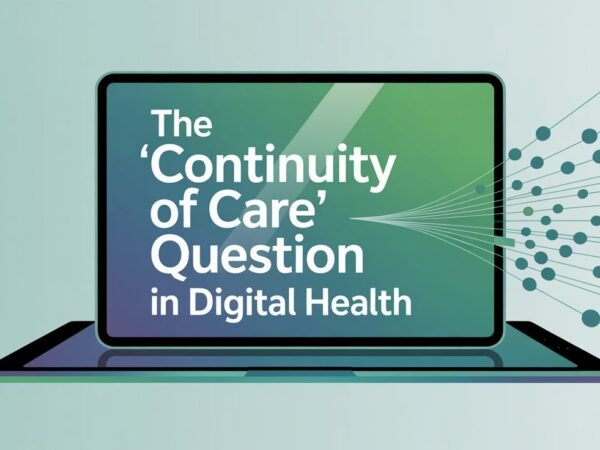Healthcare systems worldwide face increasing demands to provide high-quality, efficient care while managing costs. One critical aspect of this challenge is the prior authorization process, which requires insurance providers to approve certain medical services before they are provided. While this process helps manage costs and ensure appropriate care, it often introduces significant administrative burdens. A virtual assistant for prior authorizations has emerged as a promising solution to streamline this process, improve efficiency, and enhance patient care.
The Burden of Prior Authorizations
Prior authorizations serve as a gatekeeping mechanism to control healthcare costs and ensure medical necessity. However, this process can be cumbersome for healthcare providers. Physicians and their staff often encounter time-consuming paperwork, frequent denials, and delays in patient care. These administrative tasks can detract from the primary focus of healthcare professionals: delivering high-quality care to patients.
The current system often requires detailed documentation and multiple interactions with insurance companies. This can lead to frustration and burnout among providers as they navigate complex and usually opaque approval processes. The sheer volume of prior authorizations and varying requirements from different insurers exacerbate these challenges.
What Are Virtual Assistants?
Virtual assistants in healthcare are digital tools or services that perform tasks or services for healthcare providers. These assistants are designed to manage specific administrative functions, freeing up human resources to focus on more complex and value-added tasks. While virtual assistants do not replace human expertise, they supplement it by handling routine and repetitive processes with pondershort.com.
These assistants can vary in functionality, from software applications and automated services to outsourcing administrative tasks to specialized vendors. The primary goal is to enhance operational efficiency, reduce overhead, and improve providers’ and patients’ overall healthcare experience.
The Role of Virtual Assistants in Prior Authorizations
Simplification of Documentation
Virtual assistants can streamline documentation by organizing and pre-populating necessary forms using electronic health records (EHR) data. By automating the gathering and preparation of patient information, virtual assistants help ensure all required fields are completed correctly, reducing the likelihood of errors or omissions that could delay approval.
These tools can guide healthcare providers through documentation, highlighting requirements, and flagging missing elements. This speeds up the submission process and increases the probability of first-time approvals, minimizing the need for repeated submissions or appeals.
Efficient Communication and Coordination
One of the most time-consuming aspects of prior authorizations is the back-and-forth communication between healthcare providers and insurance companies. Virtual assistants can facilitate this communication by acting as intermediaries that submit authorization requests and track their progress. They can send automatic updates to providers and patients, keeping everyone informed about the status of an authorization.
In addition, these assistants can alert providers to any changes in insurer requirements or guidelines, helping practices stay compliant and avoid unnecessary delays. By maintaining open lines of communication, virtual assistants can significantly reduce administrative time and frustration.
Data-Driven Decision Support
Virtual assistants can leverage large datasets to provide decision support to healthcare providers. They can analyze patient data, historical authorization data, and insurance policies to identify trends, predict potential issues, and recommend best practices for successful authorization submissions.
This analytical capability enables providers to make informed decisions about when to pursue specific treatments, considering the likelihood of authorization and the implications for patient care. In doing so, virtual assistants help ensure that resources are allocated efficiently, enhancing timely and appropriate care delivery.
Benefits of Virtual Assistants in Prior Authorizations
Improved Efficiency and Cost Savings
By automating routine tasks and optimizing workflows, virtual assistants help reduce the time and resources spent on prior authorizations. This allows healthcare providers to allocate more resources to direct patient care and other critical activities. The result is a streamlined operation that supports better patient outcomes and reduces overhead.
Furthermore, fewer rejected or delayed authorizations translate to improved cash flow for healthcare providers. Reinvesting these savings into other practice areas can foster innovation, enhance patient services, and drive competitive advantage.
Enhanced Patient Experiences
Delays in prior authorizations can lead to delayed treatments, negatively impacting patient satisfaction and outcomes. With virtual assistants speeding up the authorization process, patients benefit from timelier access to necessary care. This can improve health outcomes and patient experiences, reinforcing trust and loyalty with healthcare providers.
Additionally, virtual assistants can empower patients by informing them about their authorization status. This transparency reduces anxiety and uncertainty, promoting a more collaborative and positive healthcare experience.
Reduced Administrative Burden on Healthcare Providers
Healthcare providers often face high administrative demands that contribute to stress and burnout. Providers can focus more on patient care and complex decision-making by offloading routine and repetitive tasks to virtual assistants. This enhances job satisfaction and contributes to a healthier work-life balance.
With virtual assistants managing the intricacies of prior authorizations, healthcare practices can operate more efficiently and offer a more supportive environment for providers and staff.
Overcoming Challenges and Considerations
Integration with Existing Systems
One significant challenge in implementing virtual assistants is ensuring seamless integration with healthcare IT systems such as EHRs, practice management software, and insurance portals. Successful integration is crucial to realizing the full benefits of virtual assistants, as fragmented systems can lead to inefficiencies and errors.
Healthcare organizations must prioritize compatibility and interoperability when selecting virtual assistant solutions. They must ensure these tools can communicate effectively with other systems and support their practice’s needs.
Training and Change Management
Introducing virtual assistants into healthcare settings requires adequate training and change management strategies. Healthcare staff must be adequately trained to use these tools effectively and understand their capabilities and limitations to maximize their impact.
Moreover, fostering a culture of acceptance and adaptability is essential to overcoming resistance and ensuring smooth transitions. Healthcare leaders should actively involve staff in decision-making, addressing concerns, and emphasizing the positive impact on work processes and patient care.
Privacy and Security Concerns
Given the sensitive nature of healthcare data, privacy and security are paramount when implementing virtual assistants. Organizations must ensure that any virtual assistant tools comply with relevant regulations such as the Health Insurance Portability and Accountability Act (HIPAA) in the United States. Protecting patient information and maintaining trust are critical to successfully adopting technology in healthcare.
Conclusion
Virtual assistants for prior authorizations DocVA offer incredible potential to transform the prior authorization process in healthcare. These tools can reduce costs, enhance efficiency, and enrich patient experiences by automating administrative tasks, improving communication, and providing data-driven insights. While challenges exist, careful implementation and robust integration with existing systems can help healthcare organizations unlock the full benefits of a virtual assistant for prior authorizations. Moving forward, healthcare providers must continue to explore innovative solutions that address the complexities of administrative processes and prioritize patient-centered care.













